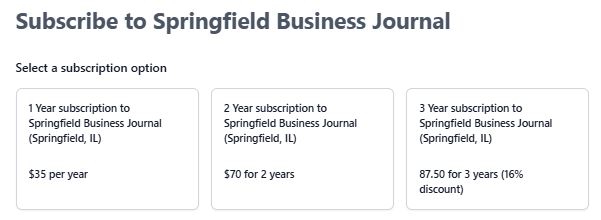By Grace Kinnicutt, Capitol News Illinois
As Gov. JB Pritzker continues to promote his budget proposal for the upcoming fiscal year, he outlined his plan for rebuilding the state’s health care workforce during a stop Feb. 15 at a Peoria community college.
He joined local leaders at Illinois Central College to talk about the Pipeline for the Advancement of the Healthcare Workforce program, a proposed initiative modeled after an existing statewide grant program, the Workforce Equity Initiative.
The PATH program would run through the state’s community college system, providing financial assistance to students enrolling in courses to obtain certificates in high-need health care areas. The targeted programs include nursing and certified nursing assistant positions, respiratory therapists and emergency medical technicians.
Assistance would also be available to address other barriers such as transportation, child care, food vouchers and tutoring.
Pritzker has asked lawmakers to invest $25 million in the program in the upcoming fiscal year.
“We are creating opportunities in underserved communities for Illinois residents to build great careers,” Pritzker said.
Pritzker also proposed a $2 million increase in funding to the state’s nursing education scholarship program which is aimed at retaining and recruiting nursing professionals. The governor also proposed eliminating licensing fees that will save health care workers about $21 million.
His budget also proposes doubling funding for a Nurse Educator Fellowship program and a Competitive Grants for Nursing Schools program aimed at increasing the number of nursing school graduates.
Pritzker touted the Workforce Equity Initiative program, which launched in 2019 with the backing of Rep. Jehan Gordon-Booth, D-Peoria. That initiative offers 120 training programs through 18 colleges across the state to increase workforce skills and expand training opportunities for minority students. Funds can be used for tuition, child care, transportation and educational supplies, and the program receives about $18.7 million annually.
Gordon-Booth said the data from the WEI program are “the best in the country” and that the program serves as a “blueprint” for the national education system.
As of Dec. 31, 2021, the collective outcomes of the FY20 and FY21 grants showed that 5,221 students had enrolled in WEI, with 3,885 being African American students.
Danielle Pate, a graduate of the WEI program at ICC, said she was going to attend another college but was recruited to join the WEI program at the school. Pate said the program helped fund her college along with providing stipends, tutoring and any other help she might have needed.
“It was definitely a blessing to focus mainly on school and receive any assistance I needed at the time, ” Pate said.
Pritzker said he had three goals for higher education programs, including increasing Monetary Award Program grants, working toward making Illinois a top five state in receiving more federal funding for student assistance and increasing state support directly for higher education institutions.
In the FY 2023 proposed budget, Pritzker proposed $122 million increase for MAP grants, bringing the program’s total funding over $600 million. He also proposed a $2.5 million increase to Adult Education and Career and Technical programs for community colleges, and $2.3 million for a Minority Teacher Scholarships program.
“We’re finally making it more affordable for students to get their degrees in Illinois, and our future is bright as a result,” Pritzker said.
Capitol News Illinois is a nonprofit, nonpartisan news service covering state government and distributed to more than 400 newspapers statewide. It is funded primarily by the Illinois Press Foundation and the Robert R. McCormick Foundation.
This article appears in Feb 1-28, 2022.

